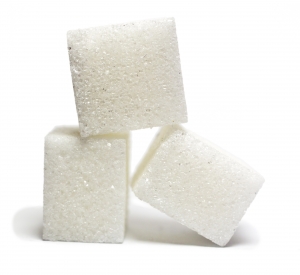 gar supply chain is set for a shake-up following milling giant Wilmar International’s announcement that it will no longer export through Queensland Sugar Limited, according to market research organisation IBISWorld.
gar supply chain is set for a shake-up following milling giant Wilmar International’s announcement that it will no longer export through Queensland Sugar Limited, according to market research organisation IBISWorld.Wilmar International will sever ties with Queensland Sugar at the end of harvest season in 2016, and create its own export channel for the 2017 harvest season and beyond. Queensland Sugar, the modern incarnation of the Sugar Board, has historically controlled all Australian sugar exports. Legislation originally required that all sugar be sold to Queensland Sugar, meaning there was only one channel to market. Despite deregulation in 2006, which removed the legal requirement to go through Queensland Sugar, all sugar exports have continued to go through the one marketing body. This is set to change in 2017.
Wilmar controls almost 40 per cent of the sugar manufacturing industry, producing well-known brands including CSR Sugar. The company processes sugar in eight mills throughout North Queensland. By creating its own export channel, IBISWorld said Wilmar was creating an opportunity for revenue growth, which could be crucial to the success of the company.
Sugar manufacturers look to export markets for growth
IBISWorld said slow annualised growth of just 1.1 per cent was forecast for the sugar manufacturing industry over the next five years and businesses were becoming more focused on international markets for revenue growth.
Over 50 per cent of industry revenue in 2013-14 is expected to come from exports, demonstrating the importance of these markets to the industry. IBISWorld said Wilmar’s export channel would give the company greater control over its exposure to overseas markets, and contribute to strong forecast revenue growth over the next five years.
Farmers’ price concerns
However, farmers in the sugar cane growing industry are less than thrilled with Wilmar’s plans, according to IBISWorld.
The traditional single export channel of Queensland Sugar has thus far precluded price competition on the export market. Farmers fear that the creation of a new channel will cause a race to the bottom on sugar export prices.
Over 2,500 individual farm operators are expected to grow sugar cane for manufacturers in 2013-14. Consequently, farmers have negligible power in negotiating with giant sugar manufacturers. IBISWorld said farmers were already contending with variable weather patterns, and volatile farmgate prices caused by downstream exposure to export markets. Price competition in the export market could place price pressure on farmers, potentially decreasing revenue and affecting profitability.
Rising demand for sugar by-products
In spite of this, IBISWorld said sugar cane farmers were actually in a strong position. Increasing global concerns about the ongoing sustainability of oil has driven demand for biofuels. Consequently, demand has been rising for sugar by-products used in the production of ethanol.
As this technology becomes more sophisticated and widely adopted, demand for sugar cane is projected to rise dramatically. IBISWorld said this was expected to offset any negative price effects caused by the creation of a second export channel.
Global sugar consumption expected to rise
Additionally, global consumption of sugar has been forecast to increase over the next five years. IBISWorld said rising populations and income growth in countries such as China and India, along with the increasing westernisation of diets in such countries, are anticipated to drive sugar consumption upwards. This will further stimulate demand for sugar cane, promoting revenue growth and higher profit margins for growers. As a result, annualised revenue growth of 3.2 per cent is forecast for the sugar cane growing industry over the next five years, to reach a healthy $1.2 billion in 2018-19.





